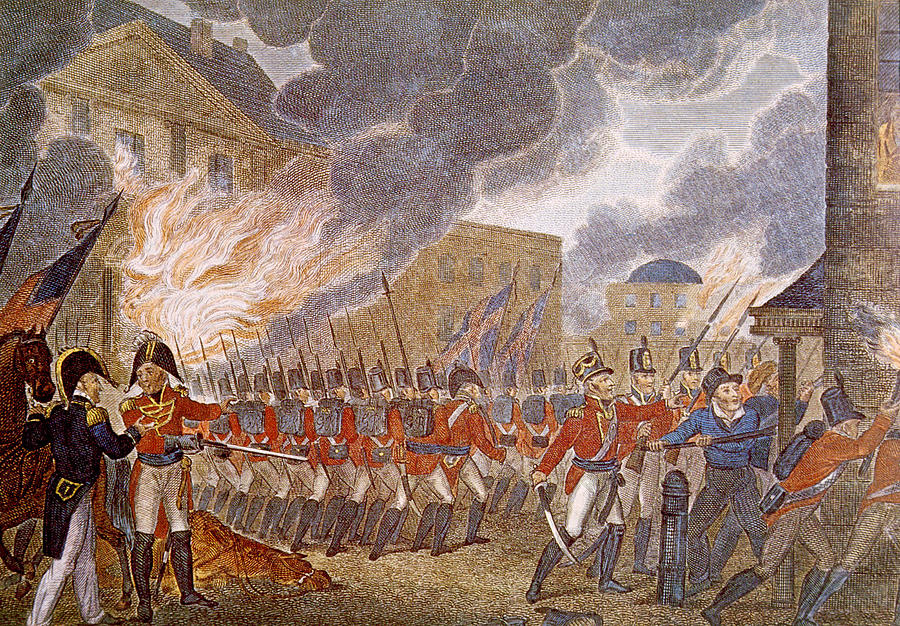Authors:
Historic Era:
Historic Theme:
Subject:
December 1954 | Volume 6, Issue 1


Authors:
Historic Era:
Historic Theme:
Subject:
December 1954 | Volume 6, Issue 1

Washington in 1814 was a capital city with no past to speak of, nothing much in the way of a present, and a future greater than any man then alive could imagine. It was a straggling country town, its dirt roads alternately ankle-deep in powdery dust and hub-deep in mud, with a general air of unfinished emptiness about it, and it was to become a great center of world power, imposing to look at, a place of destiny, majestic and secure. But before it could develop this high destiny it was to suffer the ultimate humiliation that can come upon any capital city: it was to be occupied by enemy troops, its government driven in wild flight, its public buildings burned, with every indication that neither the city nor the nation which it governed would ever again amount to very much.
For the Washington of 1814, with its 900 buildings and 8,000 inhabitants, was the capital of a country at war with one of the world’s great powers—England. There had been something slightly unreal about this war, as far as Washington was concerned. By choice and by lack of communications, the Capital exercised little central control. Armies were formed and sent off to the frontiers under generals who then were largely on their own. Washington only belatedly learned what they were doing. The war seemed, and was, remote.
Yet there had been ominous warnings. A full year before, in 1813, sea-based enemy raiders had been marauding in the Chesapeake Bay region, not sixty miles from the Capital. The Maryland Eastern Shore had been raided, and Havre de Grace on the Western Shore and Hampton in Virginia had been pillaged and burned.
But the scare soon passed; the volunteers were discharged, and a House committee was satisfied that “preparations are, in every respect, adequate to the emergency….”
But as Washington began to broil in another summer, the enemy still hung in the Chesapeake, master of its waters and shores. In May, news of British victory over Napoleon reached Washington, and in late June, specific warnings came from Gallatin and Bayard, peace commissioners in Europe, that a great British force of veterans was on its way to America. The Cabinet met immediately and did nothing in particular.
The newspapers, and specially the National Intelligencer, were undisturbed. They exulted in the drubbing that would promptly be given any invader by an aroused citizenry. War Secretary Armstrong actually discharged all the militia operating along the Patuxent, and some 300 of them came home to the District.
There was nothing to